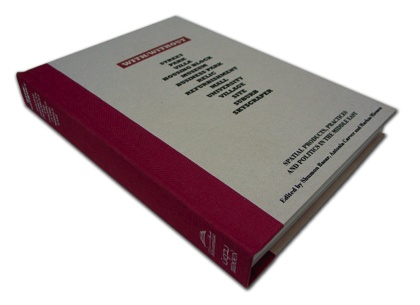Some interesting discussions of the “Fatah never thought” theory, in preparation for a later post:
Conflict Blotter:
Fatah never fought. Gaza was essentially handed over to Hamas. Soldier after soldier said they felt betrayed and abandoned by their leadership. There was a seemingly willful lack of decision making by the senior most political leadership. Up and down the Gaza Strip from the first moments of fighting, the military leadership disintegrated while the political leadership remained eerily silent.
Ousted Fatah loyalists in Gaza widely suspect a political decision was made early on in Ramallah to surrender the Gaza Strip to Hamas in order to extricate Abbas, Israel and the US from the seeming intractable pickle they were facing as infighting spiraled, living conditions worsened, and the peace process seemed hopelessly stuck. With the Palestinian territories now split, the US, Israel and Abbas suddenly have way forward, without compromising to Hamas.
The Economist:
Why did Hamas go for broke this time? And why was its victory so quick and total? Mouin Rabbani, a Jordan-based analyst with the International Crisis Group, a lobby in Brussels, thinks the combination of economic boycott, domestic discontent, criticism from radical groups abroad, the growing threat from Fatah and splits within Hamas itself meant that people who used to think time was on their side began to think it was working against them.
Fatah, meanwhile, seemed unprepared. Some of its top people in Gaza were away, Mr Dahlan among them. Mr Abbas, sitting in the West Bank, did not declare a state of emergency until Hamas militants were ransacking his Gaza home. Mid-level Fatah officers complained bitterly about lack of leadership. “We had orders not to fire except in self-defence,” says one, whom Israel allowed to flee to the West Bank. Now he sits in the lobby of Ramallah’s smartest hotel, nervously smoking with his fellow fugitives and endlessly repeating stories of Hamas’s brutality.
Indeed, some Fatah officers suspect their leaders’ apathy was deliberate. Letting Hamas win Gaza has a certain logic to Fatah. No sooner had Mr Abbas sworn in a new government under Salam Fayyad, a former World Bank official well-liked in the West, than America, the European Union and Canada lifted their 15-month-old boycott, and Israel said it would consider releasing frozen PA tax revenues, removing some of the internal checkpoints that stifle the West Bank’s economy, and holding more meaningful talks with Mr Abbas. Thus, runs the theory, Mr Abbas will reap the praise for a better life in the West Bank, while Gazans’ well-being will be at the mercy of a now-isolated Hamas.
So it was all planned, was it? Qaddoura Fares, one of Fatah’s younger leaders in Ramallah, lets out a short, dry laugh. “If only!” More likely, agrees Diana Buttu, a former adviser to Mr Abbas, the famously diffident Palestinian president wanted to avoid a showdown, and simply did not expect Hamas to go so far.
The Observer, in an interview with Hamas military commander Abu Obieda:
Despite his months of planning for such a war, Abu Obieda was surprised by the speed of the victory: ‘I expected it to take one month. That is what we planned for and trained for. But then at the beginning, all the Fatah commanders escaped their compounds in ambulances and left for Egypt. They left their men to die. Who could do that?’
At one battle, for a security compound – where his men later found weapons, ammunition and food that would survive a three-month siege – he listened on a radio to Fatah fighters on nearby rooftops begging their commanders for more ammunition that never came. ‘They all had left,’ Abu Obieda said. ‘The Fatah fighters are brave but would you fight for a commander who left you alone to die for his war?’
McClatchy:
In five days of fighting, Fatah never put up a real fight. The question is why not.
In interviews with McClatchy Newspapers during and after the fighting, Fatah foot soldiers said they felt abandoned as they realized that there’d be no counterattack, not even a last-ditch defense.
Some of them thought incompetent political leaders had done them in. But this land has long been fertile soil for conspiracy theories, and others wondered whether Abbas had deliberately ceded the Gaza Strip to Hamas in an attempt to isolate the radical Islamic group and consolidate his power in the much larger West Bank.
“There was total frustration and disappointment,” said one Abbas security officer who was among the last to abandon the presidential compound on Thursday night, June 14, and asked to be identified only as A.R. because of fear of retaliation. “We felt like there was a conspiracy to hand over Gaza to Hamas.”
Whether it was conspiracy or collapse, Fatah’s downfall in Gaza has created an unexpected opportunity for Israel, the United States and others to re-establish full relations with Abbas and the pro-Western emergency cabinet he’s installed to replace the elected, Hamas-dominated Palestinian government.
Got any more?
